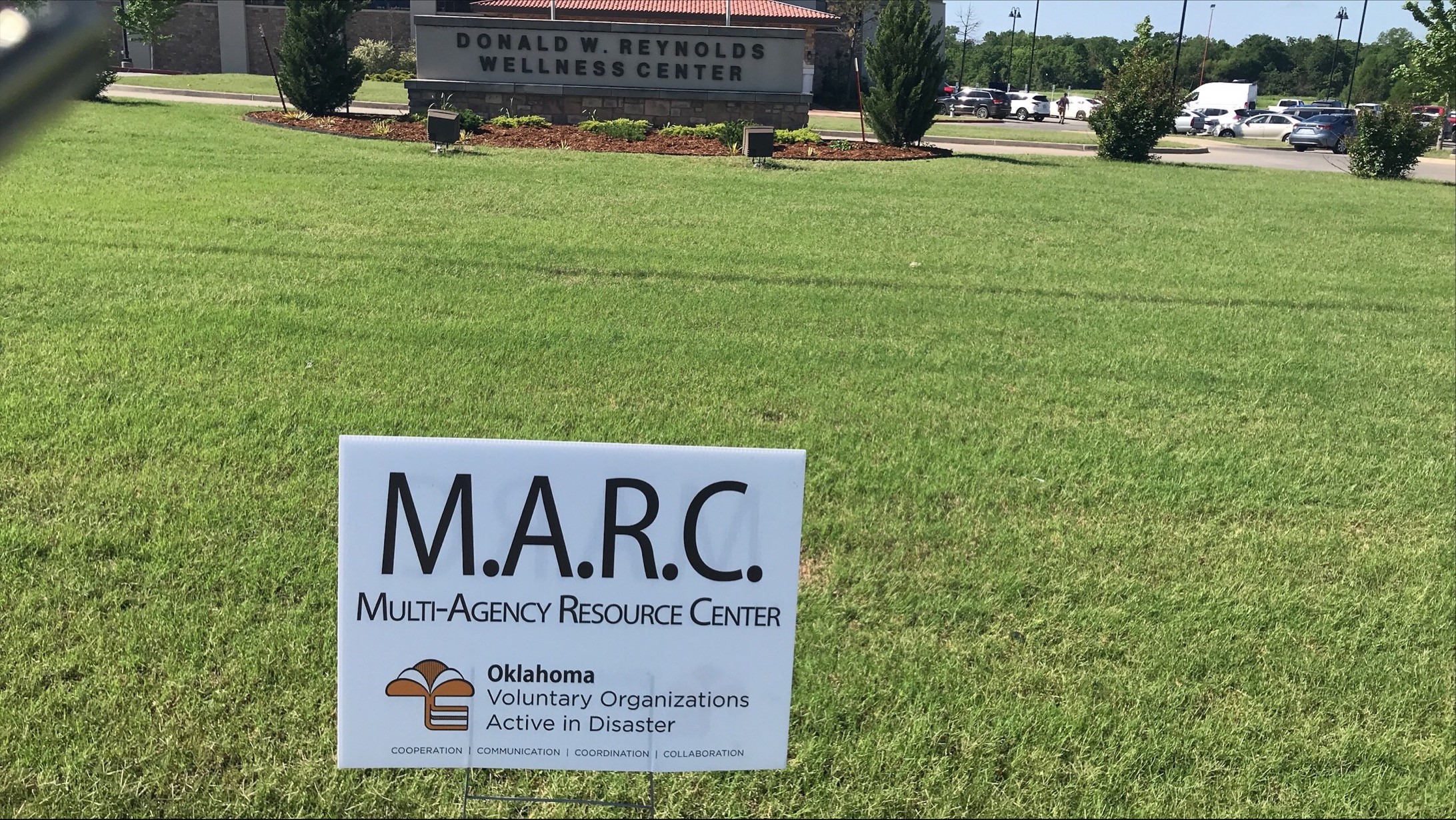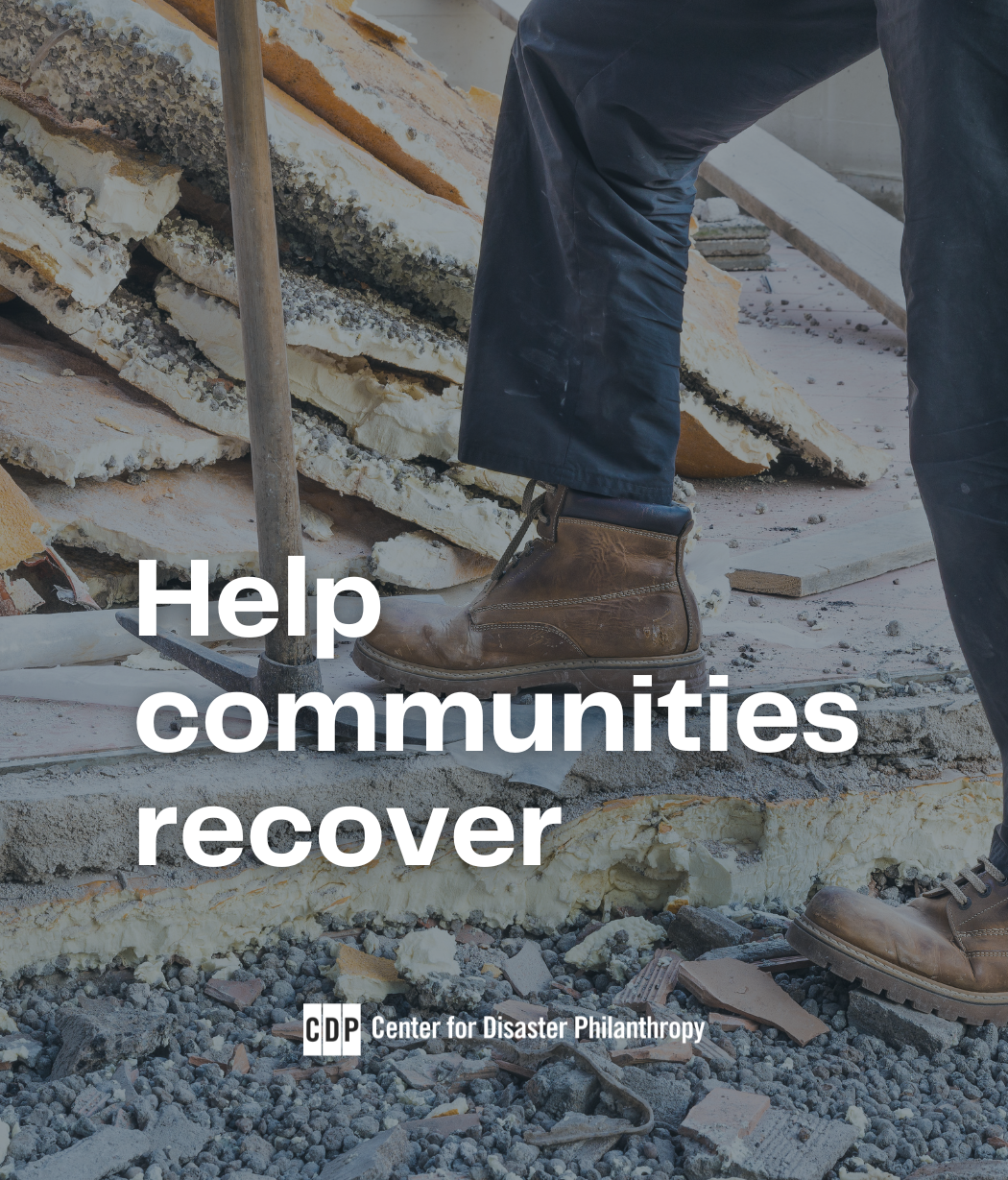Hidden disasters in Indigenous communities

Disaster Recovery in Native Communities impact story
This impact story was written by Brian Candelaria (he/him), staff attorney at Oklahoma Indian Legal Services (OILS). OILS received a grant from the Midwest Early Recovery Fund to support the Disaster Legal Navigator project, providing legal services, disaster-related assistance and referrals to Native Americans in Oklahoma in response to the 2021 Winter Storms and other low-attention disasters.
The many scenarios of disaster
Scenario #1 – Imagine the debris-strewn streets of a small rural town struck by a tornado.
Scenario #2 – Imagine the flooded streets and rain-soaked trailers of a local mobile home park.
Scenario #3 – Imagine the cold ice-covered branches that have knocked out power for days.
These weather-related “scenarios” of disasters are easy to imagine because we have encountered them through our television sets and computer screens. They live in the minds of the public for one or two new cycles and then disappear as another one takes its place. They are also scenarios that seem to be increasing in frequency, severity and duration. Yet there are other disasters that are also increasing.
These scenarios represent some “hidden” disasters:
Scenario #4 – Imagine a family member is laying in a hospital bed suffering and a loved one is sitting anxiously nearby. The anxious family member is at a loss for what to do because there is no advanced directive or medical power of attorney.
Scenario #5 – Imagine a family is separated due to questions of neglect stemming from issues of poverty.
Scenario #6 – Imagine a family is evicted from their home.
Scenario #7 – Imagine a family torn by a recent death, only to be faced with the daunting prospect of the navigating the probate process.
Finally, imagine that you are confronting these scenarios as a member of a disadvantaged population, while also dealing with the complexities of poverty and/or lack of resources due to living in a rural community.
Where we have joined others to serve tribal citizens of Oklahoma
These are the hidden disasters facing many of our enrolled tribal citizens in Oklahoma. Oklahoma Indian Legal Services (OILS) is designed to address their legal needs. The expertise of our attorneys and support staff combine to make sure that our clients and their communities can successfully navigate through the legal storms they face.
Whether the event is a declared disaster or a hidden disaster, we help our clients and their communities by collaborating, cooperating and coordinating with volunteer organizations, various government and non-governmental agencies, and many tribal governments. Through it all, one of our valued partners was the Center for Disaster Philanthropy through a grant last year.
We used the grant to enhance our connective collaborations with tribal, state and even federal partners by financing an attorney dedicated to serve the disaster-related legal needs of the tribal citizens in Oklahoma. This was an especially powerful resource when the state of Oklahoma suffered a severe weather event during the first week of May 2022.
At the beginning of the grant period, we proposed that we would conduct at least six educational events for employees of tribal programs to educate them on how to recognize hidden legal issues with their clients. We accomplished this goal by actively participating in 15 educational, conference events open to tribal employees, agencies and/or departments. We attended and presented at three disaster conferences while also collaborating with Legal Aid Services of Oklahoma, namely: Oklahoma Emergency Managers Annual Conference, Inter-Tribal Emergency Management Coalition (ITEM-C) Annual Conference, and panel presentation at National Voluntary Organizations Active in Disaster (VOAD). We also met with employees while conducting the 12 disaster-related recovery events including those regarding DR-4657 (FEMA disaster declaration for the May 2022 severe storms, tornadoes and flooding in Oklahoma). At these events, we distributed $20 gas cards, disaster recovery information and made ourselves available to members of the various affected tribal and non-tribal communities to answer FEMA and disaster response questions.
Additionally, we helped over seventy of our clients navigate difficult legal situations. For example, one of our clients owned a house financed through her tribe’s housing authority. She informed us that their home was infested with toxic, black mold. Our disaster navigator spoke up on her behalf and negotiated with the housing authority to have the mold remediated and then outlined to her the remaining options regarding other non-disaster legal issues.
It may not be the type of case that would result in a groundbreaking news story or media attention, but it serves as an example of one of the many everyday, “hidden” disasters facing members of our tribal communities.
Imagining a different scenario of disaster for tribal citizens
Not only was CDP’s grant instrumental in providing us with the financial support discussed above, but it also provided an indescribable feeling that there are organizations that understand and appreciate the passion held by all the employees of OILS to address the legal needs of tribal communities in the state. This is the type of support that adds meaning to our commitment to our tribal clients.
Moreover, this grant has encouraged us to continue to seek the funding needed to continue this good work because we know that while there is always a need to prepare and respond to a future disaster, we can also help our communities become more resilient in the process.
